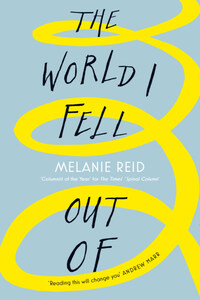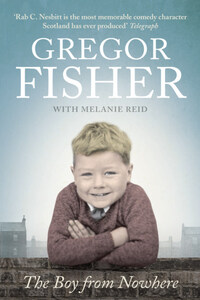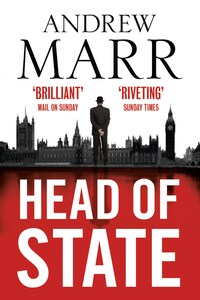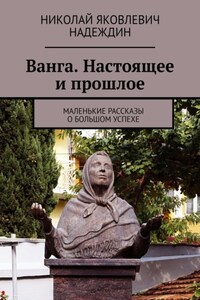4th Estate
An imprint of HarperCollinsPublishers
1 London Bridge Street
London SE1 9GF
www.4thEstate.co.uk
This eBook first published in Great Britain by 4th Estate in 2019
Copyright © Melanie Reid 2019
Foreword copyright © Andrew Marr 2019
Cover design by Heike Schüssler
Melanie Reed asserts the moral right to be identified as the author of this work in accordance with the Copyright, Design and Patents Act 1988
Naomi Shihab Nye, excerpt from ‘Kindness’ from Words Under the Words: Selected Poems (Far Corner Books). Copyright ©1995 by Naomi Shihab Nye. Reprinted with the permission of the author.
T.S. Eliot, excerpt from ‘The Hollow Men’ from Collected Poems 1909–1962 (Faber and Faber). Copyright © T. S. Eliot.
Excerpt from ‘An Epilogue’ reprinted with the permission of The Society of Authors as the Representatives of the Estate of John Masefield.
A catalogue record for this book is available from the British Library
All rights reserved under International and Pan-American Copyright Conventions. By payment of the required fees, you have been granted the non-exclusive, non-transferable right to access and read the text of this e-book on-screen. No part of this text may be reproduced, transmitted, down-loaded, decompiled, reverse engineered, or stored in or introduced into any information storage and retrieval system, in any form or by any means, whether electronic or mechanical, now known or hereinafter invented, without the express written permission of HarperCollins.
Source ISBN: 9780008291372
Ebook Edition © March 2019 ISBN: 9780008291402
Version: 2019-02-22
To Dave and Doug and all the people forced to live in the parallel world – I didn’t realise you were there until I joined you.
If a book makes you cry, properly cry, and if it makes you laugh, repeatedly, both quietly and loudly, then it’s safe to say this is probably a good book. This is probably a good book. Melanie Reid is already a star writer for anyone who regularly reads The Times. The horse-riding accident which rendered her tetraplegic gave her a ferociously hard, painful and difficult journey; and also, a seemingly inexhaustible subject for brutally self-revealing and often very funny columns. Mel, as her friends call her, is not an excessively inhibited person. She has a big laugh, and a generous, clear-sighted gaze. Here, in book form, you get the full story of her almost mundane accident and its awful consequences. It’s her story, of course, with her special particularities – her beautiful remote Scottish house, love of horses, gruffly charismatic husband, and so forth.
But it’s also a story for all of us, because we are all vulnerable. Life is incorrigibly random. Broken necks await us on school runs, uneven garden steps, family skiing holidays and at the shallow end of swimming pools; just as major strokes can happen, bizarrely enough, on rowing machines, at the basins in the hairdressing salons, or at either end of an international air flight. You never know. But, as Melanie puts it, our experiences of life are divided into an upper world of unconsciously elegant health and strength, of striding and stretching and elegant gestures we are barely aware of; and the lower, underworld, of the disabled, struggling to dress, and move, to eat and defecate. Anyone of us can be in the upper world, and then suddenly come on a completely ordinary sunny morning, tipped without a moment to complain or protest, into the underworld.
I am not as seriously disabled as Mel, but I have partial paralysis of my left leg, arm and hand and have had to go through, in a minor way, some of the tribulations that she has faced. Her description of the move from the warm cocoon of intensive care into the tougher rehabilitation wards of hospital, a place where the gym, bathroom, functional electrical stimulation and playdough all have a special meaning, returned me immediately to the wards in which I recovered from my stroke almost six years ago. She writes brilliantly about the characters of the different forms of nursing and medical staff, and the way black humour and grim solidarity knits together recovering patients still bemused about what has happened to their lives. (Though when this happens in Glasgow rather than London, the quality of humour is much, much higher.)













